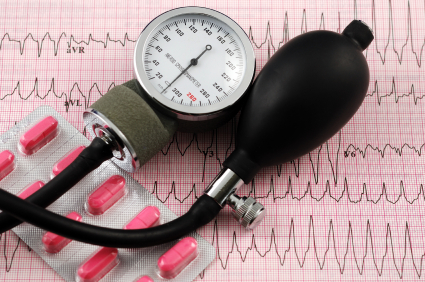The problem of hypertension is extremely important nowadays. It’s all about the consequences of this disease – every episode of high blood pressure has negative effects on the cerebral blood vessels, heart, kidneys and eyes, which are therefore referred to as target organs for hypertension.
When diagnosed, hypertension requires special attention and thoroughly developed treatment plan that includes special medications http://www.drugs-med.com provides detailed information about these preparations). Untreated hypertension is dangerous because it can considerably increase the risks for myocardial infarction, different forms of coronary artery disease, cerebral accidents, renal failure and irreversible changes of the retina.

Some of the most common classes of antihypertensive medications include:
- They are, probably, the oldest group of antihypertensive medications used since the 50s of the last century. Diuretics are still widely used, although, most often in combination with other antihypertensive drugs. These preparations help lower blood pressure by increasing the excretion of water and salt through the kidneys, which eventually leads to reduction of the volume of blood circulating in the body and thus lowers pressure on the blood vessels walls.
- Renin inhibitors. Renin is a specific enzyme synthesized by the kidneys that begins a chain of chemical reactions resulting in blood pressure increase. Renin inhibitors block the activity of this enzymeand by doing so they dilate the veins and arteries, reduce arterial pressure, decrease afterload and preload on the heart.
- ACE (Angiotensin-converting enzyme) inhibitors. Angiotensin-converting enzyme inhibitors are one of the most commonly used antihypertensive preparations. They work by inhibiting the production of ahormone called angiotensin II and thus reducing its amount in the bloodstream. Angiotensin causes blood vessels to narrow; therefore,reduced level of this hormone causes the vessels to relax and dilate resulting in decreased blood pressure.
- Angiotensin II receptor blockers (ARBs). These medications work by blocking the angiotensin receptors in the blood vessels so that angiotensin could not bind to them and cause constriction of the blood vessels.ARBs helpthe vessels to stay open and thus lower high blood pressure.
- Calcium channel blockers (antagonists). They work by preventing calcium from entering the muscle cells of the arteries and heart. Calcium channel antagonists reduce heart rate, relax and widen narrowed blood vessels and reduce blood pressure.
- Beta-blockers.These preparations act directly on the heart; they reduce the volume of blood, heart rate as well as the force of pumping and therefore the heart’s workload. Such effects of beta-blockers cause decrease in blood pressure. Beta-blockersare considered less effective than other antihypertensive medications, so they are most often administered in combination with other blood pressure drugs.
- Central agonists. They influence specific receptors in the brain and prevent the brain from sending certain signals to the nervous system that could narrow the blood vessels and increase the heart rate.
- They work by causing the muscles in theblood vessels walls to relax and thus dilating them, which allows the blood to flow easily through them and results in blood pressure reduction. Vasodilators are usually not used alone.

